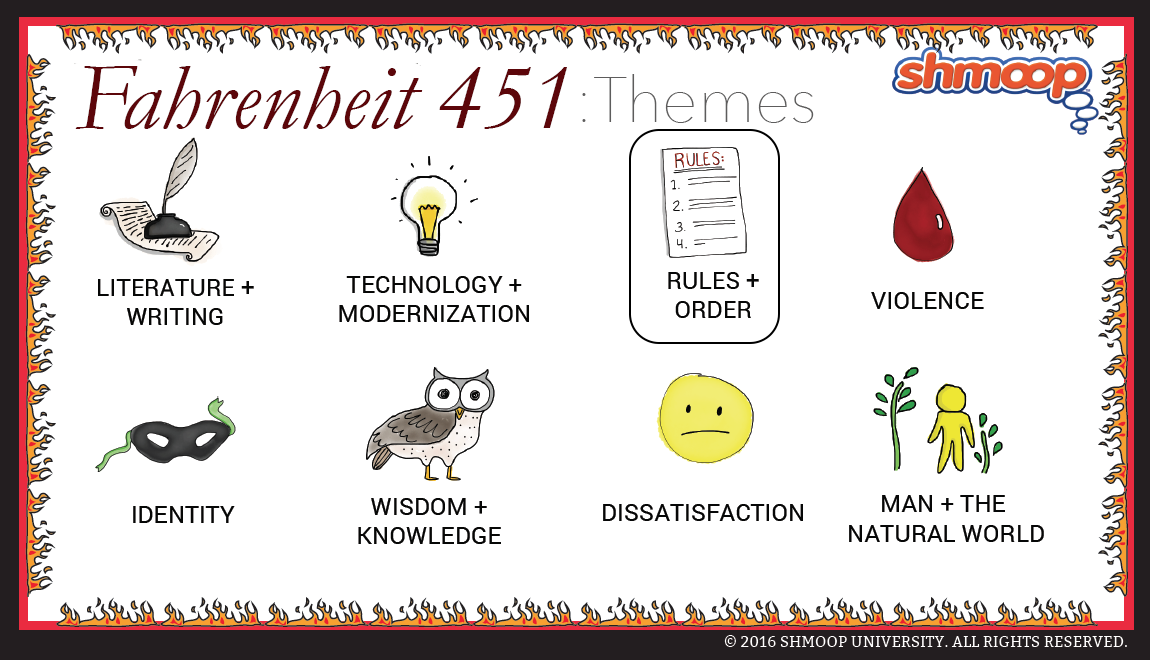 (Click the themes infographic to download.)
(Click the themes infographic to download.)
Fahrenheit 451 takes place in a world of strict rules and order. Books are illegal, free thought is essentially prohibited, and activities are tightly organized. No, this isn't WWE: Smackdown—this is the future.
The weird part is that much of the restrictions on the general populous are self-enforced. The government has taken away the citizens’ ability to dissent and veiled all dissatisfaction with a cheap version of "happiness," a.k.a. TV. This means that little external regulation is required, as the citizens conform contentedly to the status quo. Sound familiar? We thought so.
Questions About Rules and Order
- Given the way that the book people fight the law, are they "rebels"? Is it enough to fight on a small scale, without concern for the state of others?
- Would Montag have started down his rebellious path of self-doubt, guilt, and illegalities if it hadn’t been for Clarisse? What did she do for him, exactly? Wasn’t he already "different," before she came along?
- What is it about Clarisse that allows her to be different? How did she escape the system of homogeneity?
Chew on This
Beatty is a villain not for his book burning, but for his philosophy. He is the only character to understand the ramifications of his work and revel in it anyway.